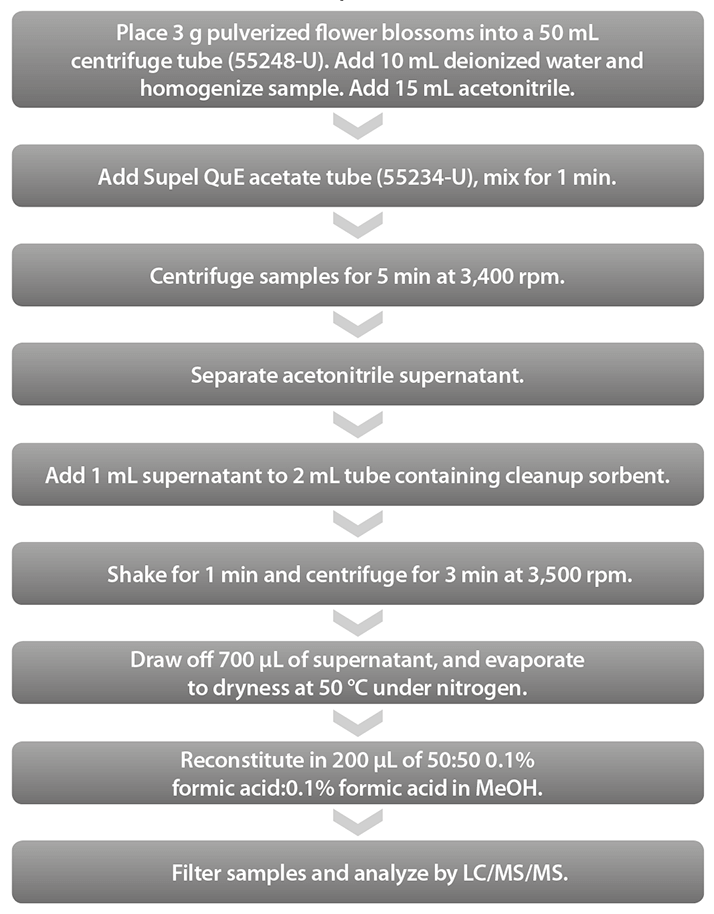Introduction
Neonicotinoids are systemic insecticides that are toxic to insects but do not affect mammals. They are water soluble and have the ability to migrate from treated soil into plant tissue, including fluids such as the nectar in flowers. These characteristics make them very useful for crop protection.1 One neonicotinoid, imidacloprid, is currently the most widely used pesticide in the world.2 The advent of the die-off of honey bees due to colony collapse disorder (CCD) has spawned investigation into pesticide exposure as the cause. Recent studies have indicated neonicotinoid pesticides as having detrimental effects on the brain cells of honey bees.3 Bees can come into contact with these pesticides in several ways. Seeds that are treated with these pesticides can generate contaminated dust when using equipment that incorporates air for planting.4 Also, some crops directly pollinated by honeybees such as cantaloupe and cucumber are treated with these pesticides.5 Recently the European Union adopted a regulation restricting the use of three of these pesticides: clothianidin, thiamethoxam and imidacloprid.6

In this application, the Quick, Easy, Cheap, Effective, Rugged, Safe (QuEChERS) approach was used to develop an extraction and cleanup method for the analysis of seven neonicotinoid pesticides in flower blossoms. Analysis of the final extracts was done by LC-MS/ MS on an Ascentis® Express C18 column. This column was chosen due to the high efficiency associated with its Fused-Core® particle structure, and its relatively low backpressure as compared to sub-2 micron UHPLC columns. This allowed the column to be used in a standard pressure HPLC system with a relatively high concentration of aqueous at the start of the mobile phase gradient.
Experimental
The blossoms used represent several types pollinated by honeybees: dandelion, sweet cherry and crab apple. The blossoms were picked fresh and then frozen prior to use. Prior to extraction, they were pulverized and spiked at 50 ng/g with a mixture of neonicotinoid pesticides. After 1 hour of wait time, extraction and cleanup proceeded as described in Table 1. Three replicate spikes and one unspiked sample were processed for each blossom type. LC-MS/MS Analysis was performed using the conditions in Table 2. The MRMs used for each pesticide are listed in Table 3. Quantitation was performed against a matrix-matched calibration curve. Separate curves were prepared for each blossom type.
 Table 1. Extraction and Cleanup Procedure
Table 1. Extraction and Cleanup ProcedureResults and Discussion
For QuEChERS extraction, sodium acetate (NAOAc) was chosen as the salt based on previously published findings.5 For cleanup, several different sorbents were evaluated. It was found that PSA/C18 yielded the best recoveries while still reducing pigmentation in the sample extract. PSA/C18/ENVI-Carb™ yielded the cleanest extracts (no pigmentation), but very poor recovery for all the target compounds. The zirconia-based sorbents Z-Sep and Z-Sep+ were found to be incompatible with these pesticides, yielding very low recoveries. PSA alone yielded an extract with more pigmentation than PSA/C18, and recoveries were very poor.





